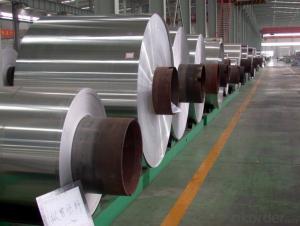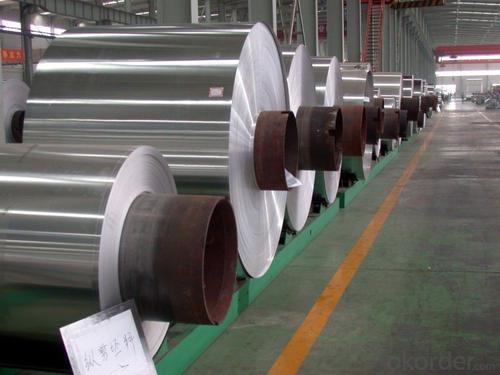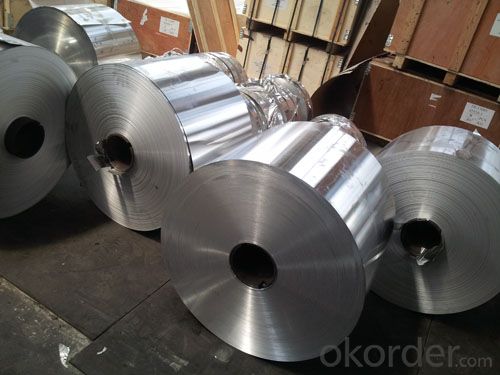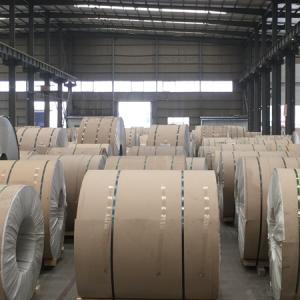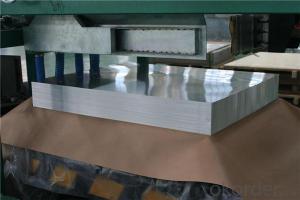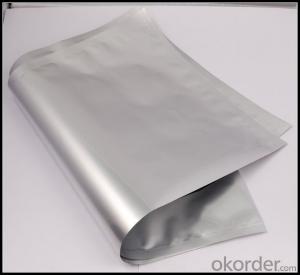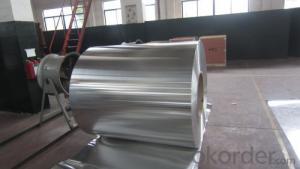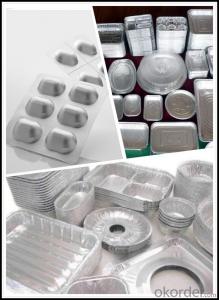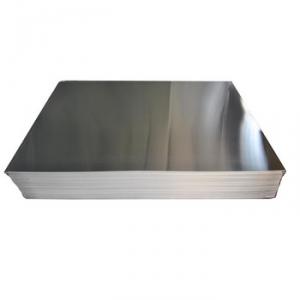Trane Aluminum Coil - Aluminium Sheet 7075 6063 5052 3mm 5mm Thickness
- Loading Port:
- Shanghai
- Payment Terms:
- TT OR LC
- Min Order Qty:
- 5 m.t.
- Supply Capability:
- 5000 m.t./month
OKorder Service Pledge
OKorder Financial Service
You Might Also Like
Specification
Aluminium Sheet 7075 6063 5052 3mm 5mm Thickness
Packaging & Delivery
| Packaging Details: | Standard seaworthy packages in bundles or as per requirement. Container size: The inner size of container is below: 20ft GP: 5.8m(length) x 2.13m(width) x 2.18m(high) about 24-26CBM 4 0ft GP: 11.8m(length) x 2.13m(width) x 2.18m(high) about 54CBM 40ft HG: 11.8m(length) x 2.13m(width) x 2.72m(high) about 68CBM(stainless steel seamless pipe) |
| Delivery Detail: | Within 5-15 days after deposit(price of aluminum coil) |
Our Services
1. Provide products with high quality and reasonable price
2. The first time back to you
3. Perfect after-sale service
4. Small order is acceptable
5. OEM is acceptable
6. 12Months quality guarantee
7. Any third party testing is acceptable
Product Description
| Product Name | Prices of aluminum coil |
| Standard | JIS, AISI, ASTM, GB, DIN |
| Alloy | Yes |
| Width | 720-1250mm or as the customers' requirements |
| Length | 10000-12000mm mm or as the customers' requirements |
| Thickness | 0.12-1.5mm |
| Surface | Black painted,PE coated,GL,color coated,etc |
| Item | steel plate,steel sheet,alloy plate,alloy sheet |
| Application | construction field, ships building industry, petroleum & chemical industries, war and electricity industries, food processing and medical industry, boiler heat exchanger, machinery and hardware fields ,etc. |
| Packing | Export standard or as customers' requirement |
| Delivery time | Within 7 working days, according to customers' quantities |
| Payment | L/C or T/T or as customers' requirement |
| MOQ | 1 Ton |
| Quality | High Quality. We can Provide SGS inspection if you need . |
| Productivity | 60000 Tons/Month |
| Attention | We will supply you good quality and bottom price and first-class service in china and hope to be your golden supplier |
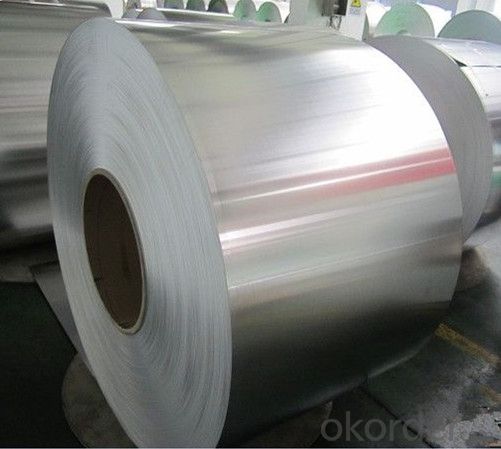
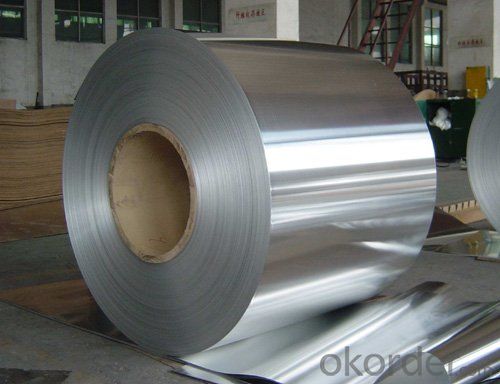
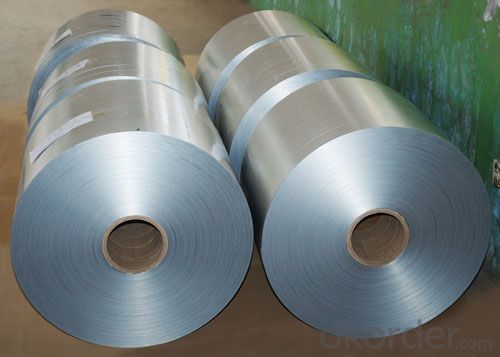
- Q: Can aluminum coils be used in the production of aluminum foam panels?
- Yes, aluminum coils can be used in the production of aluminum foam panels. Aluminum foam panels are typically made by injecting a foaming agent into molten aluminum, which causes the aluminum to expand and form a foam structure. This foam is then solidified and can be further processed into panels. Aluminum coils are commonly used in various industries, including construction, automotive, and packaging, due to their excellent properties such as lightweight, high strength, corrosion resistance, and thermal conductivity. These properties make aluminum coils suitable for use in the production of aluminum foam panels. To produce aluminum foam panels, the aluminum coil can be processed into a flat sheet or strip, which is then cut into the desired size and shape for the panels. The flat aluminum sheet or strip can be easily handled and processed during the foam production process. The foam-forming agent can be introduced into the molten aluminum, and the expanding aluminum foam can be poured onto the flat sheet or strip to form the panels. The use of aluminum coils in the production of aluminum foam panels allows for efficient manufacturing processes, as the coils can be easily rolled, shaped, and cut to meet specific design requirements. Additionally, the use of aluminum coils ensures that the foam panels maintain the desirable properties of aluminum, such as strength, durability, and light weight. Overall, aluminum coils can be effectively used in the production of aluminum foam panels, providing a versatile and cost-effective solution for various applications, including insulation, sound absorption, and structural components.
- Q: Can aluminum coils be welded?
- Yes, aluminum coils can be welded. Aluminum is a highly weldable material and is commonly used in various industries for its lightweight and corrosion-resistant properties. There are several welding methods that can be used to join aluminum coils, including TIG (tungsten inert gas) welding, MIG (metal inert gas) welding, and laser welding. However, it is important to note that welding aluminum can be more challenging compared to other metals due to its high thermal conductivity and low melting point. Therefore, proper welding techniques and equipment, such as using specialized aluminum welding wire and shielding gases, are necessary to ensure successful and high-quality welds.
- Q: What are the potential risks of using aluminum coils in specific applications?
- The potential risks of using aluminum coils in specific applications include corrosion, especially in environments with high humidity or acidic conditions. Aluminum coils are also more susceptible to damage and denting compared to other materials. Additionally, aluminum coils may have lower heat transfer capabilities, which could affect the efficiency of certain applications.
- Q: How are aluminum coils used in the production of musical instruments?
- Aluminum coils are widely used in the production of musical instruments due to their unique properties and advantages. One of the main uses of aluminum coils is in the manufacturing of guitar pickups. These coils are wound around a magnetic core and serve as the primary component for capturing the vibrations of the guitar strings and converting them into electrical signals. The electromagnetic properties of aluminum make it an excellent material for this purpose as it allows for the precise sensing and amplification of the instrument's sound. In addition to guitar pickups, aluminum coils are also utilized in the production of other instruments such as electric keyboards, synthesizers, and electric violins. These coils are essential for the generation and transmission of sound signals, ensuring high-quality audio output. Aluminum's lightweight nature makes it a preferred choice as it doesn't add unnecessary weight to the instrument, allowing for ease of handling and improved portability. Moreover, aluminum coils are employed in the construction of wind instruments like saxophones and trumpets. They are used to shape the tubing and create the body of these instruments. Aluminum's corrosion resistance properties are particularly valuable in this application, as it helps to maintain the instrument's durability and longevity. Overall, aluminum coils play a vital role in the production of musical instruments by providing a reliable means of capturing, transmitting, and amplifying sound signals. Their unique properties, such as electromagnetic sensitivity and corrosion resistance, make them an ideal choice for ensuring high-performance and longevity in various musical instruments.
- Q: How do aluminum coils contribute to thermal insulation?
- Aluminum coils contribute to thermal insulation in several ways. Firstly, aluminum is a highly reflective material, meaning it can reflect heat and radiation away from the surface. This property helps to reduce the amount of heat that is absorbed by the coil and transferred to the surrounding environment. Additionally, aluminum coils are often used in conjunction with insulation materials such as foam or fiberglass. These insulating materials help to trap air pockets, which act as a barrier to heat transfer. The aluminum coil serves as a protective layer, preventing the insulation material from being damaged or compromised. Furthermore, aluminum is a lightweight material with excellent corrosion resistance. This allows aluminum coils to be used in various applications, including HVAC systems, where they can help to maintain a consistent temperature by minimizing heat loss or gain. Overall, aluminum coils play a vital role in thermal insulation by reflecting heat, protecting insulation materials, and providing durability and longevity to the insulation system.
- Q: What are the precautions to be taken while handling aluminum coils?
- When handling aluminum coils, there are several precautions that should be taken to ensure safety and prevent any potential accidents or damage. Firstly, it is important to wear appropriate personal protective equipment (PPE) such as gloves, safety goggles, and protective clothing. This will help protect against cuts, abrasions, and chemical exposure. Secondly, aluminum coils should be handled with care to prevent any damage or deformation. Avoid dropping or mishandling the coils, as this can affect their structural integrity and potentially cause injuries. Additionally, it is crucial to be aware of the weight of the coils and lift them correctly using proper lifting techniques. If the coils are too heavy to lift safely, it is important to seek assistance or use mechanical lifting equipment to avoid strain or injury. Furthermore, aluminum coils should be stored and transported in a secure and stable manner. They should be placed on a flat, even surface and properly secured to prevent any movement or rolling. When transporting, ensure that the coils are adequately protected from any potential damage or external forces. It is also important to keep the work area clean and free from any clutter or obstacles that may cause accidents. Any spills or leaks should be promptly cleaned up to prevent slips or falls. Lastly, it is crucial to follow all safety guidelines and procedures provided by the manufacturer or employer. This includes understanding the specific properties and hazards associated with aluminum coils and following any recommended handling or storage instructions. By following these precautions, individuals can minimize the risk of accidents, injuries, and damage while handling aluminum coils.
- Q: Can aluminum coils be customized according to specific requirements?
- Yes, aluminum coils can be customized according to specific requirements. Aluminum coils can be tailored to meet specific dimensions, thicknesses, and finishes to suit various applications. Customization options can include specific alloys, tempering processes, and even specialized coatings to enhance corrosion resistance or improve appearance. Additionally, aluminum coils can be fabricated with specific features such as perforations, embossing, or edge treatments to meet specific functional or aesthetic requirements. With the ability to be customized, aluminum coils offer flexibility and versatility for a wide range of industries and applications.
- Q: What are the storage life and shelf life of aluminum coils?
- The storage life and shelf life of aluminum coils can vary depending on various factors such as the storage conditions and the specific type of aluminum alloy used. Generally, aluminum coils have a relatively long storage life and shelf life. In terms of storage life, aluminum coils can be stored for an extended period of time without significant degradation in their quality or performance. However, it is important to store them in a dry and well-ventilated area to prevent corrosion. Moisture can cause oxidation and corrosion, which can affect the integrity and durability of the aluminum coils. As for the shelf life, aluminum coils can remain in good condition and retain their functional properties for an extended period of time when stored properly. The exact shelf life will depend on the specific application and the intended use of the aluminum coils. To ensure the longevity of aluminum coils, it is recommended to follow the manufacturer's guidelines for storage and handling. Additionally, regular inspections and maintenance can help identify any signs of corrosion or damage and take appropriate measures to prevent further deterioration.
- Q: What benefits can be gained from utilizing aluminum coil insulation in various applications?
- <p>Aluminum coil insulation offers several advantages, including high thermal conductivity, which allows for efficient heat transfer. It is lightweight and corrosion-resistant, making it durable and suitable for various environments. The material is also known for its flexibility, which facilitates easy installation and adaptability to different shapes and sizes. Additionally, aluminum coil insulation has good electrical conductivity, which can be beneficial in applications requiring electromagnetic shielding. Its recyclability contributes to environmental sustainability, reducing waste and promoting green practices.</p>
- Q: Can aluminum coils be used in the manufacturing of window frames?
- Yes, aluminum coils can be used in the manufacturing of window frames. Aluminum is a popular choice for window frame production due to its numerous advantages. It is lightweight, durable, and resistant to rust and corrosion, making it suitable for both indoor and outdoor applications. Aluminum coils are typically used in the extrusion process, where they are heated and forced through a die to create the desired shape and size of the window frame. This process allows for flexibility in design, allowing manufacturers to produce window frames in various styles and configurations. Additionally, aluminum is a highly recyclable material, making it an environmentally friendly choice for window frame production.
Send your message to us
Trane Aluminum Coil - Aluminium Sheet 7075 6063 5052 3mm 5mm Thickness
- Loading Port:
- Shanghai
- Payment Terms:
- TT OR LC
- Min Order Qty:
- 5 m.t.
- Supply Capability:
- 5000 m.t./month
OKorder Service Pledge
OKorder Financial Service
Similar products
Hot products
Hot Searches
Related keywords
